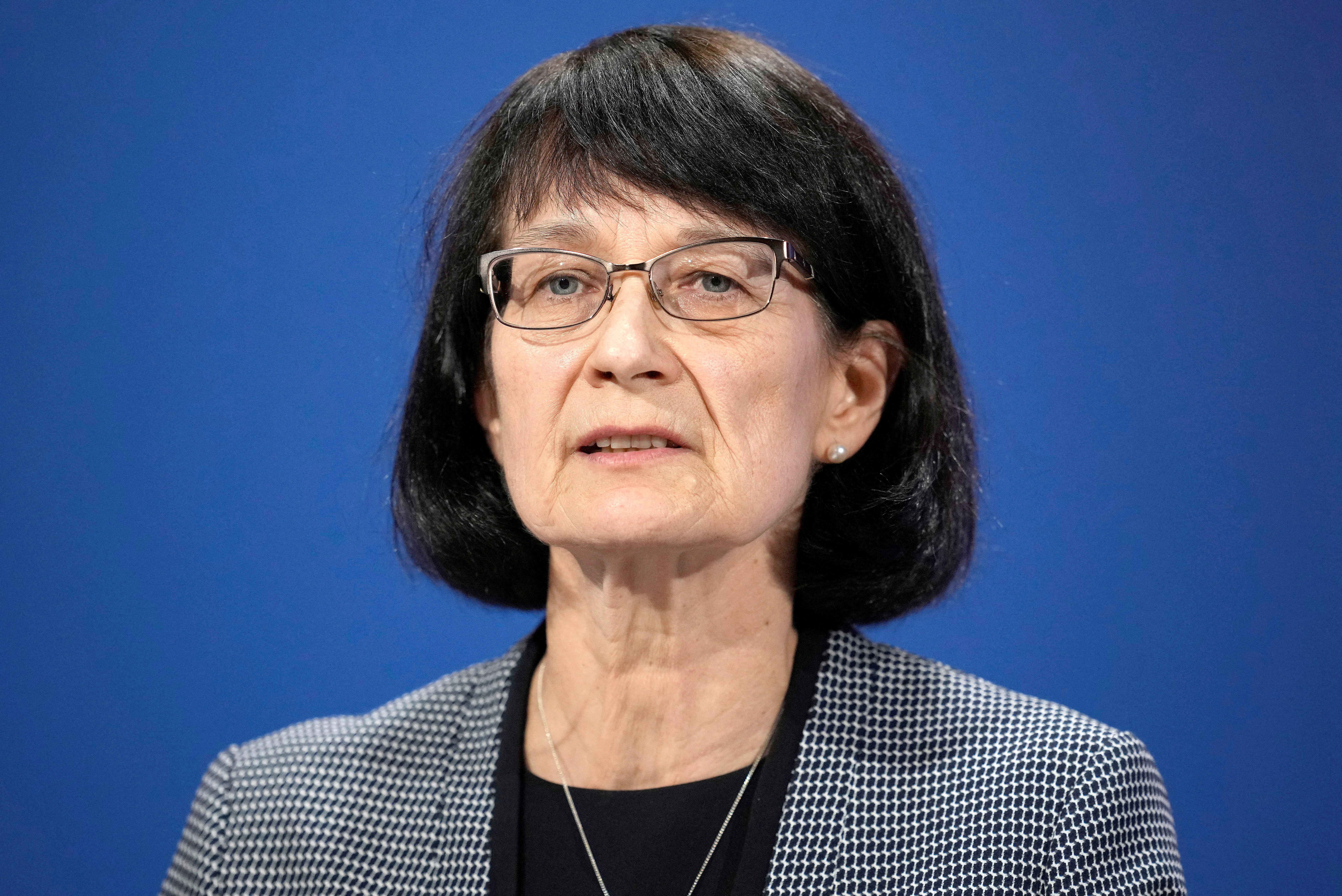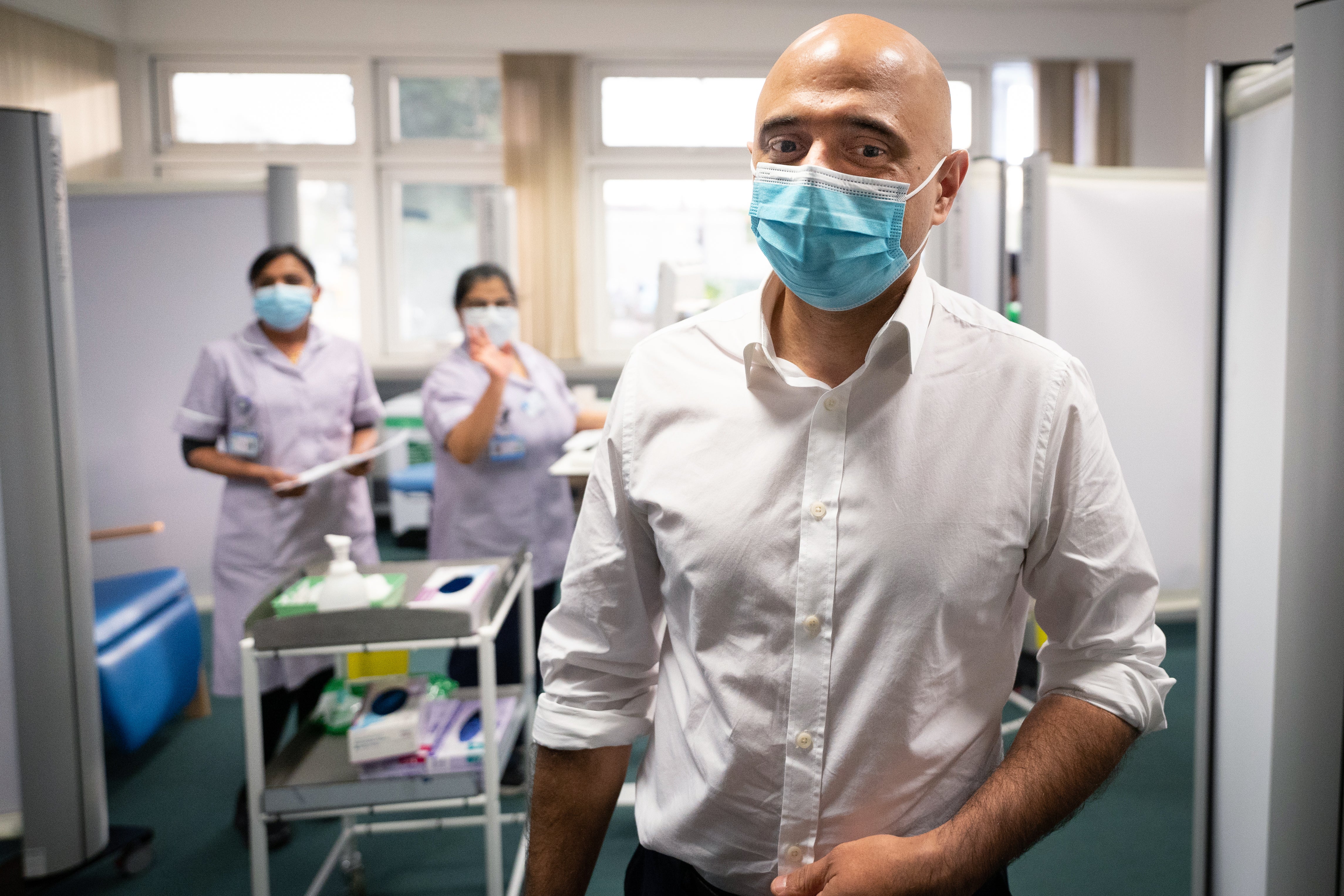‘Serious threat’ to UK remains despite promising Omicron data, says Jenny Harries
‘There’s a glimmer of Christmas hope in the findings we published yesterday,’ health security chief says

Your support helps us to tell the story
From reproductive rights to climate change to Big Tech, The Independent is on the ground when the story is developing. Whether it's investigating the financials of Elon Musk's pro-Trump PAC or producing our latest documentary, 'The A Word', which shines a light on the American women fighting for reproductive rights, we know how important it is to parse out the facts from the messaging.
At such a critical moment in US history, we need reporters on the ground. Your donation allows us to keep sending journalists to speak to both sides of the story.
The Independent is trusted by Americans across the entire political spectrum. And unlike many other quality news outlets, we choose not to lock Americans out of our reporting and analysis with paywalls. We believe quality journalism should be available to everyone, paid for by those who can afford it.
Your support makes all the difference.Omicron still poses a “serious threat” to the UK despite a “glimmer of hope” in research showing people contracting the virus are less likely to need hospital care, Dr Jenny Harries has said.
The remarks from the chief executive of the UK Health Security Agency (UKHSA) follow her stark warning last week that the variant was “probably the most significant threat we’ve had since the start of the pandemic”.
In findings published on Thursday, the UKHSA estimated that someone with Omicron was between 31 and 45 per cent less likely to attend A&E, and 50 per cent less likely to be admitted to hospital, than an individual with the Delta variant.
However, due to the sheer number of infections – on Thursday the official data showed almost 120,000 new positive cases – it warned that a signifiant number of people could still become seriously ill and need hospital treatment.
Asked on BBC Radio 4’s Today programme whether the research on hospitalisations was enough to downgrade her warning to MPs last week, she replied: “There’s a glimmer of Christmas hope in the findings we published yesterday, but it definitely isn’t yet at the point where we could downgrade that serious threat.”
Emphasising the fact that the preliminary findings published by the UKHSA involved “very small numbers”, Dr Harries said: “Critically, what we’re seeing is Omicron largely in younger people – it’s only just now that the cases are starting to tip into the older population, particularly the 60- and 70-year-olds.
“There are a number of different reasons why we need to continue to look at this data further.”
She later added: “I don’t think we do know yet [whether] this is going to be a significantly less serious disease for the population – the older population that we are normally most concerned about in relation to serious disease and death.”
With Boris Johnson yet to decide whether further Covid restrictions will be needed after Christmas in England, Dr Harries also suggested that minsters should consider the wider impact of the Omicron wave – rather than just the severity of the illness.
Asked whether the government will have the information needed by Monday to make key decisions, she told the BBCthat ministers were being kept abreast of the latest data on a daily basis, and that this would continue throughout the Christmas period.

“Ministers will look at all of the data we have available,” she said. “And that isn’t simply what the epidemiology is saying, it’s how it’s impacting society.
“So for example, we have very high rates of individuals off sick; we know that, particularly in London, around 1 in 35 have currently got Omicron. Now that’s having an impact on the workforce. So these are not simply about hospitalisation rates.”
According to reports on Thursday evening, the prospect of new restrictions being introduced by New Year’s Eve seems increasingly unlikely in light of research on the Omicron variant from the UKHSA and other bodies.
One government source told The Daily Telegraph it was a “working assumption” in Whitehall that Mr Johnson would stop short of new legal curbs on socialising immediately after Christmas, and that he could instead opt for giving advice to the public.
They added that the prime minister would also be constrained by a short window next week in which to recall parliament – something Mr Johnson has vowed to do if the government decides further restrictions are needed to curb the spread of Covid, after demands from rebellious Tory MPs.
However, speaking on Thursday, Sajid Javid, the health secretary, warned that cases were spreading at an “extraordinary rate”, saying: “Hospital admissions are increasing, and we cannot risk the NHS being overwhelmed.”
Asked when there would be clarity for people’s New Year plans, Mr Javid said: “We do have clarity; the government has taken action already: so-called plan B; people behaving sensibly and much more cautiously since they’ve learned about this variant.
“And as I said, we’re getting more data all the time. We’re clear that there’s no need for any kind of further restrictions ... before Christmas, but of course, we will keep the situation under review.”
He added: “We’re not planning any further announcements this week. Despite the caution that we’re all taking, the sensible caution, people should enjoy their Christmases with their families and friends, of course remain cautious, and we will keep the situation under review.
“We’re learning more all the time, as we have done from this new data, and we will keep analysing that data. And if we need to do anything more, we will – but nothing more is going to happen before Christmas.”
Join our commenting forum
Join thought-provoking conversations, follow other Independent readers and see their replies
Comments